Information Memorandum
On the basis of the contract and the exclusive right of sale, we offer services to ensure the most favorable conditions for the acquisition of one of the largest plants in Eastern Europe for the production of bioethanol.
General characteristics of the plant for the production of bioethanol
Total amount of investments already made in the construction of the plant: CZK 1,438,918,779 – EUR 60,000,000 (at prices 2007-2009)
The project to build a bioethanol plant in the Czech Republic was implemented as a consequence of the European Commission's Directive 2003/30 ES on supporting the use of biofuels and other renewable fuels for transport.
Construction date: 2007-2008
Putting into test operation: from 2008 to the present
Production facilities
- 1,000,000 hectoliters (80,000 tons) of bioethanol for additives to motor gasoline and biofuel production
- 1,800 tons of technical ethanol for the production of cleaning and technical fluids
- 100,000 dry waste from alcohol production used as livestock feed
Characteristics of the technological process
the production of bioethanol is based on a license from the Swedish company Chematur Engineering AB. Production is based on the saccharification of starch, which is contained in cereals and the subsequent fermentation of sugar substances in the process of occurrence of bioethanol and carbon dioxide. The technological process is fully automated and computerized. Control is carried out from the central CP and at production sites.
Raw materials for production
low-grade wheat, triticale (a hybrid of wheat and rye)
Acceptance and storage of grain
Grain is transported by railroad cars and trucks and spilled to underground tanks, from where it is conveyed by conveyors to elevators for initial cleaning.
Main cycles:
- Acceptance, storage and grinding of grain
- hydrolysis
- fermentation
- destilation and dehydration,
- drying, palletizing and storage of DDGS (dry bulk products)
- scalding and forwarding of products
Product quality: anhydrous ethanol – concentration min. 99.8 % hm. – Excellent
Technology: Chematur's advanced modern continuum technology. Supplier Chematur Engineering AB Sweden. The Chematur license is Biostil.
Condition of technological equipment: excellent – almost new
Condition of production, warehouse, administrative buildings and structures: excellent – new
Technological process: refinement is needed
Sales market: 70% – European Union countries and above all Germany, 30% – Czech Republic
Supplies of raw materials: Czech companies
Plant area: 5 hectras of factory floor or 8 hectares together with its own railway branch.
Staff: 80 people
History of the plant for the production of bioethanol
The project to build a bioethanol plant in the Czech Republic was implemented as a consequence of the European Commission's Directive 2003/30 ES on supporting the use of biofuels and other renewable fuels for transport.
From the very beginning of its implementation, the project was indirectly and directly influenced by Czech political and power structures.
For the production of bioethanol, a technological line was launched consisting of advanced technological equipment, the core of which is the products of the Swedish company Chematur Engineering AB, and the equipment of Czech manufacturers.
Deliveries of secondary equipment from Czech manufacturers were rather forced, due to the strategic policy of the state to support Czech manufacturers.
During the initial commissioning of the plant into test operation in 2008, due to the non-standard layout of the technological line, errors were found that affected the quality and volume of products. In addition, the production spread an increased smell. The Swedish company Chematur Engineering AB refused to eliminate the shortcomings, referring to the fact that it did not build the plant on a turnkey basis, and at the initiative of the Czech side, third-party (Czech) suppliers were involved in the supply of technological equipment.
In 2008, the plant was forced to stop testing production and, first of all, to carry out measures to eliminate the smell.
The suspension of production had a negative impact on the repayment schedule of bank loans – their total volume in 2007-2009 amounted to 1 billion 200 million Czech crowns.
In 2009, several costly fundamental changes in the technological process were carried out. The most significant were investments in the air purification system, optimization of the mill and separation unit. In the mill, the technology of grinding grain with hammers was replaced by the technology of rose grinding with rollers with partial removal of the grain surface. In the separation, the volume of the duct through the arched sieves was increased and a "fiber washing" system was introduced.
These measures led to a significant elimination of odor, stabilization of the production process, but did not completely eliminate the shortcomings of the fermentation process – too short a period of the fermentation cycle and insufficient fermentation power. To eliminate these shortcomings, the company no longer had the financial means. In 2009, the volume of the plant's products sold amounted to 694,000,000 CZK.
In 2010, the increase in wheat prices on the one hand, and the lag in the increase in prices for bioethanol in the European market on the other hand, contributed to an even greater lag in the company's repayment of bank loan debts, as a result of which banks initiated bankruptcy.
On December 17, 2010, the plant was declared bankrupt.
On the day of the declaration of bankruptcy, the plant's debt to banks amounted to 1,170,903,266 CZK, including interest on loans
The main causes of bankruptcy
- Failures in the technological cycle caused by errors due to the creation of a hybrid from the main core of Swedish and secondary Czech equipment
- Due to limited financial resources, during the trial period it was not possible to completely eliminate the shortcomings in the technological process and bring the plant to the planned production facilities
- Increase in wheat prices in 2009-2010 and inadequately slow increase in prices for bioethanol on the European market
- Burden of bank loans in the amount of CZK 1,200,000,000
Assessment of the prospects of the enterprise
Elimination of shortcomings in the technological cycle:
According to the estimates of the plant's chief specialists, investments of about 100,000,000 CZK (EUR 4 million) are needed to eliminate the shortcomings and bring production to the planned capacities. Basically, this is a replacement for the technology of wheat grinding (a finer rozemol is needed).
The main specialists of the plant are confident that they know and are able to eliminate the shortcomings in the technological cycle, subject to the provision of additional above investments.
Sales of products:
The European bioethanol market is characterized by great stability and constant growth. For example, in 2010, the bioethanol segment showed the best growth in relation to the biodiesel segment – 26.1% against 11.1%. In addition, the bioethanol market is constantly expanding. For example, in Ukraine – after the entry into force of the Law of Ukraine No. 1391-VI "On Amendments to Certain Laws of Ukraine Regarding the Promotion of the Production and Use of Alternative Fuels".
During the period of its activity, the plant had long-term contracts for the sale of bioethanol and a stable interest of customers in products of all kinds.
Among the regular customers were the following companies: Slovnaft a.s., SOLVADIS GmbH, UNIPETROL, ED & F Mann GmbH, ČEPRO a.s., AGROFERT HOLDING a.s., Dalkia Česká republika, a.s. and others.
Our services for the acquisition of the plant. The terms and conditions. Cost:
- The acquisition of the plant is possible only from bankruptcy auctions organized by the Bankruptcy Manager in the form of a direct sale to the buyer. In accordance with the Bankruptcy Act of the Czech Republic, the debts and other obligations of the bankrupt are completely canceled.
- we will provide an exclusive for the Russian investor when buying an enterprise from the auction and minimize the competitive component of the competition
- we will provide for the Russian investor the acquisition of a subject plant at a price: 380 000 000 CZK = 15 million euros
- Subject to certain conditions, a potential buyer can partially finance the transaction (up to 60%) by Czech banks at European credit rates
- We will ensure the admission to the plant of a collection of experts and technologists representing the interests of a potential buyer for the necessary time and the launch of production for a more accurate assessment of the production characteristics of the technological process and equipment.
- In case of signing an agreement on the sale of the enterprise with the Bankruptcy Manager and providing irrevocable collateral, we will provide a deferral of payment of the principal payment for the purchase of the plant for up to 3-6 months.
- If the buyer is able to conclude contracts for the future sale of products, we can provide financing of the plant by Czech banks at European credit rates
- In the shortest possible time will provide a set of necessary personnel (technologists, engineers, middle management, etc.) for the implementation of full-fledged economic and production activities of the plant
- Comprehensive assistance in the adaptation of the new owner on the Czech market. If necessary, the guardianship of the enterprise during the first years of activity.
Cost of services:
- services related to the acquisition of the plant – in the price of the plant
- other services – by arrangement
Assessment of investment attractiveness
- Acquisition of almost a new plant at a cost 4 times less than the cost of the initial investment
- The stable market situation, its constant growth, the increase in standards for the mandatory content of bioethanol in gasoline in the countries of the European Union (from today's 2% to 10% by 2020), the introduction of mandatory norms in Ukraine, confirm that the business with bioethanol is highly profitable and has a great stable potential.
- In Russia, there have been and are projects for the construction of bioethanol plants: Alexander Ryazanov, former First Deputy Chairman of the Gazprom Management Committee and ex-head of Gazprom Neft, planned to build a powerful bioethanol plant in the Tambov Region; in Tatarstan – JSC "Tatneftekhiminvest-holding"; in the Irtysh region, the Krasnodar Territory, the Rostov region – the petrochemical cluster PARK (GC Titan), etc. All projects were focused on the export of products to Europe, but faced excise taxes that increased the price of products by 16 times and made it uncompetitive in Europe. At the same time, all Russian investment projects for the construction of bioethanol plants had a cost of 80 to 120 million euros and a return on investment of 5-6 years.
- The location of the plant in the Czech Republic – in the central part of Europe – is a strategic factor in direct access to the European market of bioethanol and biofuels.
- Stable European market for products. In accordance with the norms of the European Union, in gasoline intended for sale in the EU, the content of bioethylene additives in the amount of 2% is mandatory, and by 2020 – 10%
- Use of cheap Czech bank loans to finance the plant's activities
- Cheaper Czech skilled labor compared to Western European countries.
- The possibility of supplying cheap raw materials from the CIS countries and increasing the competitiveness of products and enterprises.
- The prospect of market expansion in view of the overall global strategy for the development of alternative and environmentally friendly fuels.
Possibility of third-party financing of the transaction
It is possible to partially finance the transaction (up to 60%) by Czech banks at European credit rates.
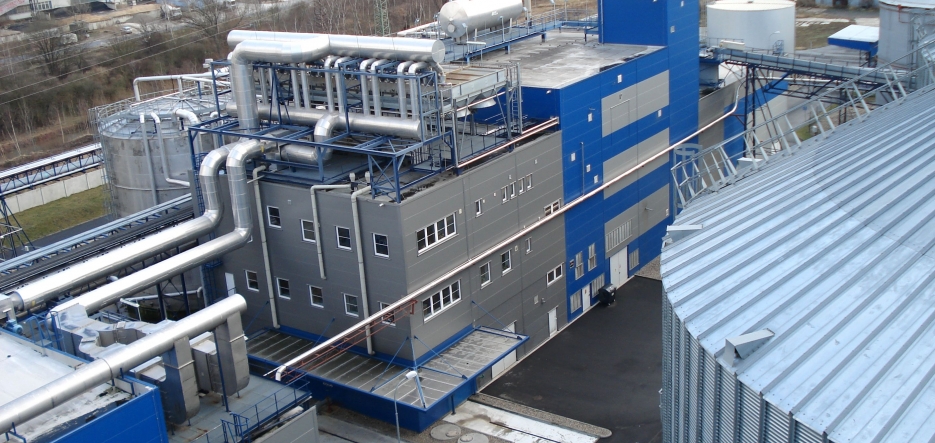
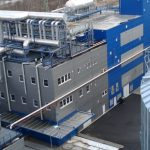
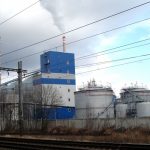
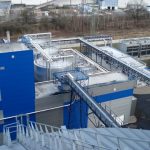
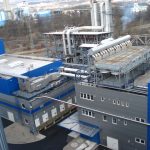
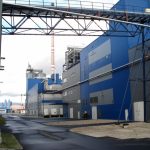
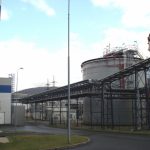
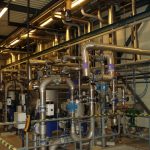
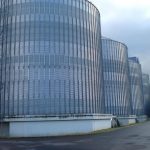
 +420 724 22 22 77
+420 724 22 22 77